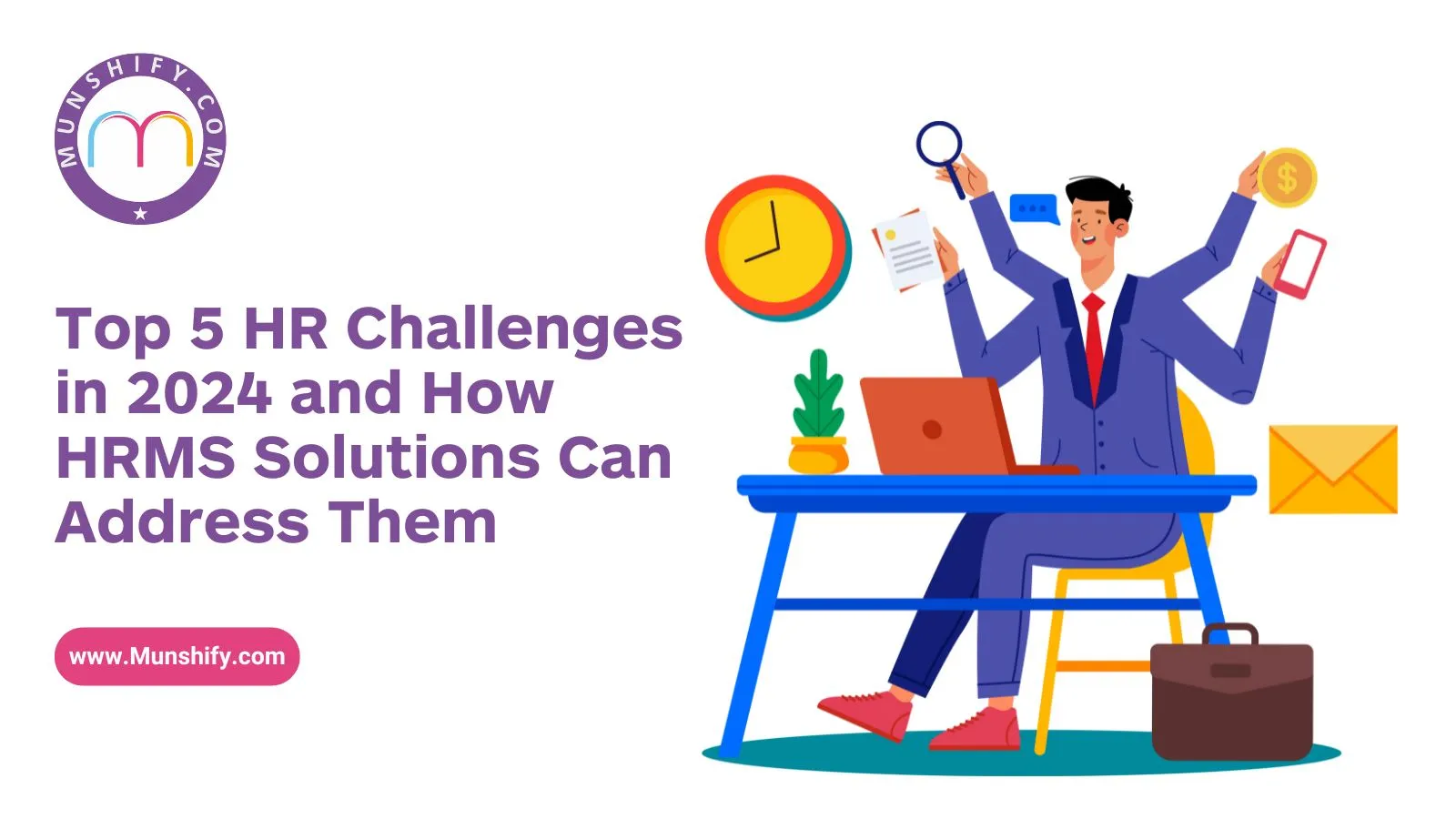As we head deeper into 2024, the world of human resources continues to evolve at a rapid pace. New challenges have emerged, while others remain as complex as ever. From leveraging AI for greater efficiency to navigating the heated debate over remote and hybrid work, HR teams face an uphill battle to keep up. Fortunately, HRMS solutions (Human Resource Management Systems) are helping companies address these challenges with ease.
1. The Rise of ESS Portals and HRMS Solutions
Employee Self-Service (ESS) portals have become indispensable in the modern HR toolkit. In 2024, ESS portals allow employees to take control of their own data, from updating personal information to submitting leave requests or accessing pay stubs. However, many companies still struggle with implementing user-friendly and effective ESS systems.
This is where HRMS solutions truly shine. Modern HRMS software integrates powerful ESS portals that are not only easy to use but also provide employees with real-time access to the information they need. By offering features such as document management, leave tracking, and performance reviews, these solutions ensure that employees remain engaged and empowered, while HR teams can focus on more strategic tasks.
2. Attracting Top Talent in a Competitive Market
The war for talent is as fierce as ever in 2024. Finding and attracting top talent has become increasingly difficult, with more companies adopting global hiring practices. The talent pool may have expanded, but so have the demands and expectations of potential candidates.
Today’s top talent seeks more than just a paycheck; they want growth opportunities, a positive work culture, and, increasingly, flexibility in where and how they work. For HR departments, the challenge lies in creating attractive offers while maintaining a competitive edge in the market.
3. The Rise of “Window Shopping” in Recruitment
“Window shopping” is a new phenomenon in the recruitment landscape where candidates explore multiple job offers but hesitate to commit. In 2024, this trend has grown, fueled by the rise of job platforms and social media, which allow candidates to browse opportunities passively. As a result, HR professionals face the growing challenge of engaging these “window shoppers” and turning them into committed employees.
4. Managing the Debate: Remote, Hybrid, or In-Office Work
As we move through 2024, the debate over remote, hybrid, and in-office work models continues to be one of the most hotly discussed topics in HR. While some employees thrive in a remote setting, others prefer the structure and collaboration of an office environment. Hybrid models, which attempt to blend the best of both worlds, have become popular, but they present their own challenges in terms of management and employee satisfaction.
5. Leveraging AI for Greater Efficiency and Productivity
Artificial intelligence (AI) has permeated nearly every aspect of business, and HR is no exception. In 2024, HR professionals are looking for ways to use AI to enhance productivity and streamline workflows. Tasks like screening resumes, scheduling interviews, and even predicting employee performance have all been automated, thanks to AI-powered HRMS solutions.
However, this growing reliance on AI brings its own set of challenges. Ensuring that the AI systems are transparent, unbiased, and accurate remains a concern. Moreover, many HR teams struggle to adopt these new tools fully due to a lack of training or understanding.
In 2024, the challenges facing HR departments are vast, but the tools to overcome them are within reach. From leveraging AI to addressing the shift towards remote work, HRMS solutions are designed to simplify complex processes, engage employees, and drive efficiency. By integrating technology and human-centered approaches, companies can turn these challenges into opportunities for growth.
If you’re looking to stay ahead in HR management, investing in the right HRMS solution is no longer optional — it’s a necessity.
FAQs
1. How can HR departments stay ahead of emerging HR trends in 2024?
To stay ahead, HR departments should continuously monitor industry trends, invest in professional development, and leverage new technologies like HRMS solutions. Networking with industry peers and participating in HR conferences can also provide valuable insights and keep teams updated on best practices.
2. What role does data security play in HRMS solutions?
Data security is crucial in HRMS solutions as they handle sensitive employee information. Ensure that the HRMS solution you choose complies with data protection regulations, offers robust encryption, and provides regular security updates to safeguard against breaches and unauthorized access.
3. How can small and medium-sized businesses benefit from HRMS solutions?
HRMS solutions can help small and medium-sized businesses streamline HR processes, improve efficiency, and reduce administrative costs. They provide tools for managing employee data, automating payroll, and enhancing recruitment, which can be especially beneficial for businesses with limited HR resources.
4. What are some best practices for implementing an HRMS solution effectively?
Effective implementation of an HRMS solution involves thorough planning, including setting clear objectives, selecting the right system, and providing adequate training for users. Engaging with stakeholders throughout the process and having a dedicated support team can also ensure a smooth transition and maximize the benefits of the system.
5. How can HRMS solutions impact employee satisfaction and engagement?
HRMS solutions can positively impact employee satisfaction and engagement by providing self-service options, improving communication, and offering transparent access to performance and benefits information. Features like automated feedback surveys and engagement tracking can help HR teams understand and address employee needs more effectively.
Don’t let HR challenges hold you back. Explore Munshify HRMS today and unlock a new level of efficiency and productivity!


